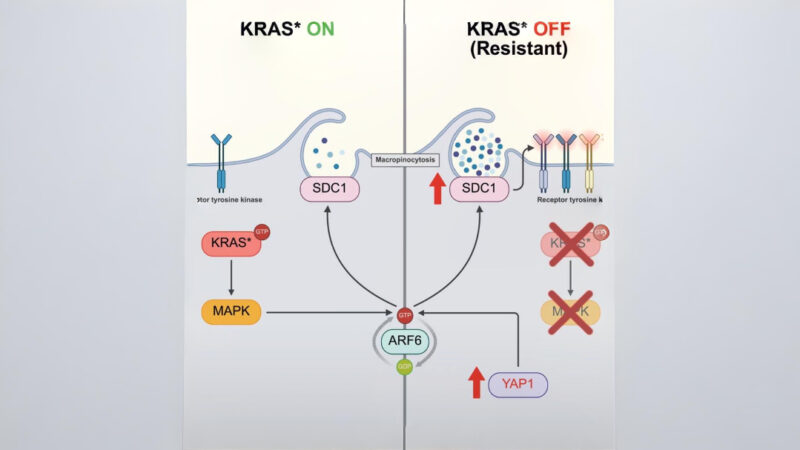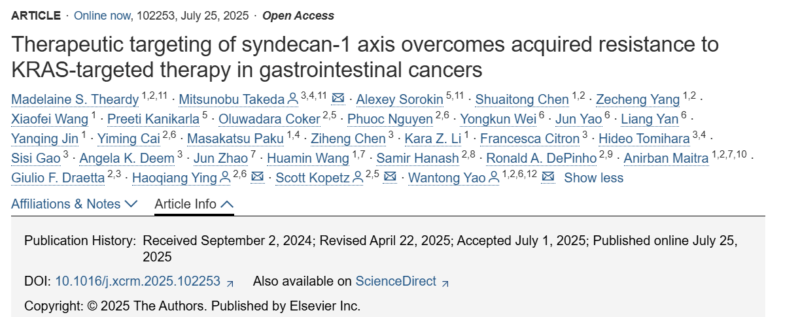Patrick Hwu, President and CEO of the Moffitt Cancer Center, shared a post on LinkedIn:
“Science Saturday
Why do some gastrointestinal cancers become resistant to KRAS-targeted therapies?
A new study in Cell Reports Medicine shows that cancer cells can bypass KRAS inhibition by switching on a protein called syndecan-1 (SDC1), which helps them keep growing.
This escape is driven by a backup pathway called YAP1-SDC1. Blocking it helped overcome resistance and shrink tumors in lab models.
Targeting this pathway could help make KRAS-targeted treatments more effective and durable.
Read the full study in Cell Reports Medicine by Cell Press.”

Title: Therapeutic targeting of syndecan-1 axis overcomes acquired resistance to KRAS-targeted therapy in gastrointestinal cancers
Authors: Madelaine S. Theardy, Mitsunobu Takeda, Alexey Sorokin, Shuaitong Chen, Zecheng Yang, Xiaofei Wang, Preeti Kanikarla, Oluwadara Coker, Phuoc Nguyen, Yongkun Wei, Jun Yao, Liang Yan, Yanqing Jin, Yiming Cai, Masakatsu Paku, Ziheng Chen, Kara Z. Li, Francesca Citron, Hideo Tomihara, Sisi Gao, Angela K. Deem, Jun Zhao, Huamin Wang, Samir Hanash, Ronald A. DePinho, Anirban Maitra, Giulio F. Draetta, Haoqiang Ying, Scott Kopetz, Wantong Yao

More posts featuring Patrick Hwu on OncoDaily.


